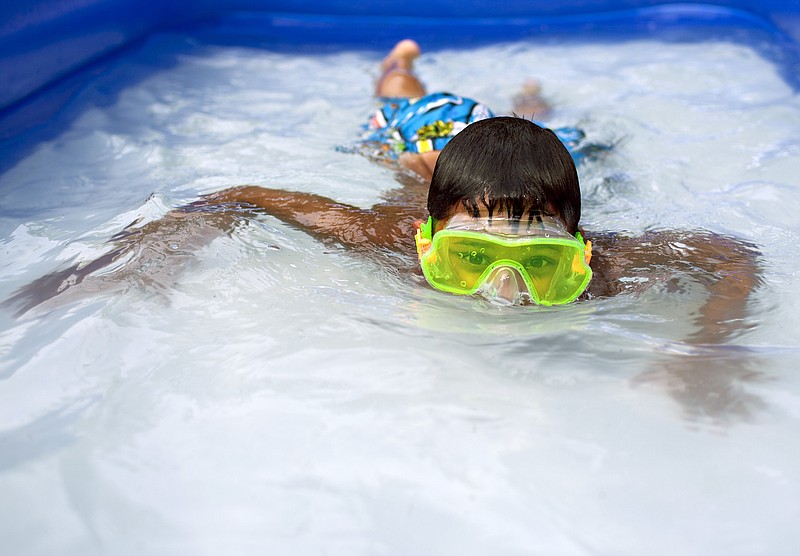You would never take a bath in the same water every other family member - including your dog - has used for a week. So why shouldn't you be concerned about swimming in a backyard pool used by the same folks?
As pool owners across the region get out the deck chairs and rubber floats, medical researchers are warning that bacteria in the pool can be a serious health hazard.
"The main thing is gastrointestinal organisms, because if people are really swimming they inevitably will get water into their mouth," said Dr. Mark Anderson, an infectious disease specialist with CHI Memorial hospital.
The federal Centers for Disease Control and Prevention warns one germ in particular, cryptosporidium (called crypto for short), has a tolerance for chlorine, the chemical most pool owners add to keep germs under control.

"Crypto, which can stay alive for days even in well-maintained pools, has become the leading cause of swimming pool-related outbreaks of diarrheal illness," according to the CDC. "From 2004 to 2008, reported crypto cases increased over 200 percent (from 3,411 cases in 2004 to 10,500 cases in 2008)."
"Crypto is not killed very easily," Anderson said. "Regular chlorination of drinking water won't kill it."
Other things to worry about include skin, ear, eye, respiratory, neurologic and wound infections.
Chlorine will prevent many of those infections if properly used, but that is often not the case. According to the CDC, a 2010 study found that one in 10 public pool inspections disclosed improper chlorine levels, and private pools often have similar problems.
"You can tell if chlorine is in the water, but there is no way to tell if it is enough," Anderson said.
Some common-sense precautions can dramatically reduce the risk:
- Keep anyone suffering from diarrhea out of the water.
"If people are sick and they get into the pool and they have some diarrhea, if the water is not sufficiently chlorinated, that can transmit stuff," Anderson said. That means keeping babies in diapers out of the pool, too, he said.
- While it is OK to let your dog swim in the pool, keep animals away from the pool when you are not around, Anderson said, because they can poop nearby and rainwater can wash their feces into the water.
- Don't urinate in the pool. We know you would never do that, but remind the neighbors' kids. One study found that an average pool contained about a gallon of urine for every 10,000 gallons of water. The average backyard pool is about 20,000 gallons. Anderson noted that while the idea may be gross, urine in the pool is not usually infectious.
- Shower before jumping into the pool. Sweat contains about an eighth as much urea as urine itself, plus you may be carrying chemicals on your body from makeup, lotions or salves. The chemicals may not be health hazards, but they may leave a sheen on the surface of the pool and make the water appear murky.
Experts at America's Swimming Pool Co. recommend pool owners check the chlorine and pH levels at least three times a week. They also say pools should also be over-chlorinated every two weeks, by adding a pound of chlorine per 10,000 gallons of water, to "shock" the pool to get rid of urine and crypto bacteria.
Contact staff writer Steve Johnson at 423-757-6673, sjohnson@timesfreepress.com, on Twitter @stevejohnsonTFP, and on Facebook, www.facebook.com/noogahealth.
